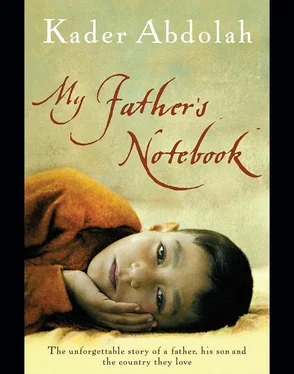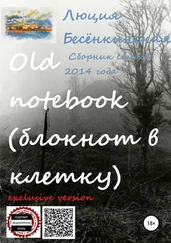Igor had nothing more to say about Mossadegh, but he did point me in the general direction of the clippings.
I sat on the floor for a couple of hours, poring over his files. And this is what I found:
From 1921 to 1925 Mossadegh served as minister of justice, then of finance and finally of foreign affairs. He was elected to Parliament in 1944. He founded the National Front Party in 1950 and became prime minister in 1951, at which point he nationalised the Anglo-Iranian Oil Company. The country was plunged into a direct conflict with Great Britain. Mossadegh was forced to resign in 1952, but was reinstated three months later, as a result of popular riots. He promptly curtailed the power of the shah — the son of Reza Khan — and began to lean heavily on the support of leftist factions. The shah fled the country. Backed by the United States, however, he returned. The national government fell and Mossadegh was arrested.
When Churchill learned that Mossadegh had been placed under permanent house arrest, he raised his glass and said, “He was mad … a dangerous man.”
Mossadegh was far from “dangerous”. He was our pride and joy.
Thousands of his followers were arrested. Many of them were executed and hundreds fled the country. The majority of the refugees were members of a left-wing Russian-oriented party that was opposed to the shah as well as to American interference.
Because of its popularity, the party had assumed it would soon be in power. Its adherents had been dissatisfied with Mossadegh, because they believed he made too many concessions to the imperialists. So, when the shah returned to power, they failed to support Mossadegh until it was too late. When he fell, the party fell apart. Some of its followers were executed, some went underground and some escaped.
Many of them fled to Saffron Mountain, in hope of crossing the border into the Soviet Union. It wasn’t all that easy. Gendarmes chased them from one mountain to another in their American-made jeeps. Hungry and desperate, they sought refuge among the villagers.
My father probably didn’t know the first thing about Communism, but he did know something about people on the run.
Once, when he and I were in Saffron Village, he took me to our almond grove. He thrust a hunk of bread into my hands, tiptoed through the trees and hid behind a tree trunk.
“What are you doing?” I asked.
“Come here. Give me the bread,” he signed.
“What are you talking about?”
He snatched the bread from me and walked off hurriedly in the direction of the mountains.
“In the old days,” he signed, “lots of men used to sneak through my almond grove. I gave them bread. After that they went into the mountains.”
A year after Mossadegh’s arrest, a long train whistle rang out over the mountains. The train stopped in Saffron Village, which it had never done before.
“What are we in for now?” people said to each other.
The answer was sugar. American sugar. Sacks of sugar with an English word stamped on the front: sugar.
The old Persian word qand had to make way for “sugar”. It was the first English word to reach Saffron Mountain. It was followed by another word: “cigarette”. The traditional pipes gradually made way for cigarettes.
The age-old word kad-khoda , for the headman of a village, disappeared and was replaced by another word: bakhsh-dar . The bakhsh-dar was a man in a tie who drove up and down the village in a jeep.
One day the bakhsh-dar , accompanied by the local imam and the village elders, stood on a chair and nailed a picture of the shah to the wall of the mosque.
That’s what happened and that’s how the son of Reza Khan came to be the shah of Persia.
In school, we learned nothing about Mossadegh, but everything about the shah. We learned that he was the son of Reza Khan, who was the son of an earlier shah, who was the son of an even earlier shah, and so on through 2,500 years of history, all the way back to Cyrus — the first king in Persian history, the man whose story is chiselled in cuneiform in the cave on Saffron Mountain: My name is Cyrus. I am the king of kings .
The shah has a son.
A dead parrot falls out of a tree.
These two events alter
the course of the story.

Sometimes I think I’m writing this book out of guilt. The guilt of a son who failed his given task, who escaped halfway through the job and left his father to his fate. Maybe that’s why my father comes to me so often in my dreams, why he never looks at me, but avoids my glance and averts his head.
Now that he’s dead, I can’t turn back the clock, I can’t make it up to him. I can only hope that he’s forgiven me and that the next time he appears in my dreams, he’ll look me in the face.
I’m writing this book mostly for my father, but also to convince myself of the inevitability of my escape. To assure myself that events caught up with me, that I was no longer in control, that … how shall I say it? … that he was the reason I fled the country.
I can’t explain it, other than to say that I’m sitting here now, struggling with another language, precisely because I’m the son of Aga Akbar.
Despite the fact that I later used my father to achieve my own goals, I’ve always served him faithfully.
For example, even now, when I’m writing this story, it’s his book I’m trying to decipher and his words I’m trying to put into a readable form. I’m not complaining. I accept it as my fate. I have no choice — the story must go on.
The son of Reza Khan divorced his first two wives because they failed to produce an heir. The third one finally bore him a son, a crown prince. His dream had come true.
I was about ten or eleven, I think, when the crown prince had his third or fourth birthday. In the larger cities it was celebrated with great joy, but in our smaller, more conservative city it mostly escaped notice. In the schools of Tehran, bare-legged girls performed a dance. There was singing and everyone was given a banana as a special treat. Where I lived, nobody had even seen a picture of a banana.
The National Archives in Tehran have a collection of newspapers from that era, with photographs of schoolgirls slipping on banana peels. There’s also a picture of the queen and her son visiting one of the injured girls in the hospital.
The mayor of our city did his best to promote the crown prince’s birthday. He ordered our school, which occupied a forlorn and forgotten building on the outskirts of town, to organise a celebration. The mayor was to bring an “important” guest and the principal saw an opportunity to climb a rung or two up the bureaucratic ladder.
The principal would no doubt have loved to ask a Tehran girl to dance bare-legged for the mayor, but even he knew that that was beyond the realm of possibility.
“Ishmael!” the principal tapped me on the shoulder one day. “Come with me. I want to talk to you.”
In his office — normally off-limits to students — he offered me a biscuit and even showed me a skinny little banana. He started talking about the shah and then about our ancient Persian kingdom and its first king, Cyrus, the king of kings. Then he moved on to our present-day country, which was rapidly becoming a modern society. You could see progress everywhere, he said, except in our backward town, which was in the clutches of the clerics. And now, with the mayor and an important guest coming to our school, the principal needed my help.
“Me? Help you?”
Читать дальше













